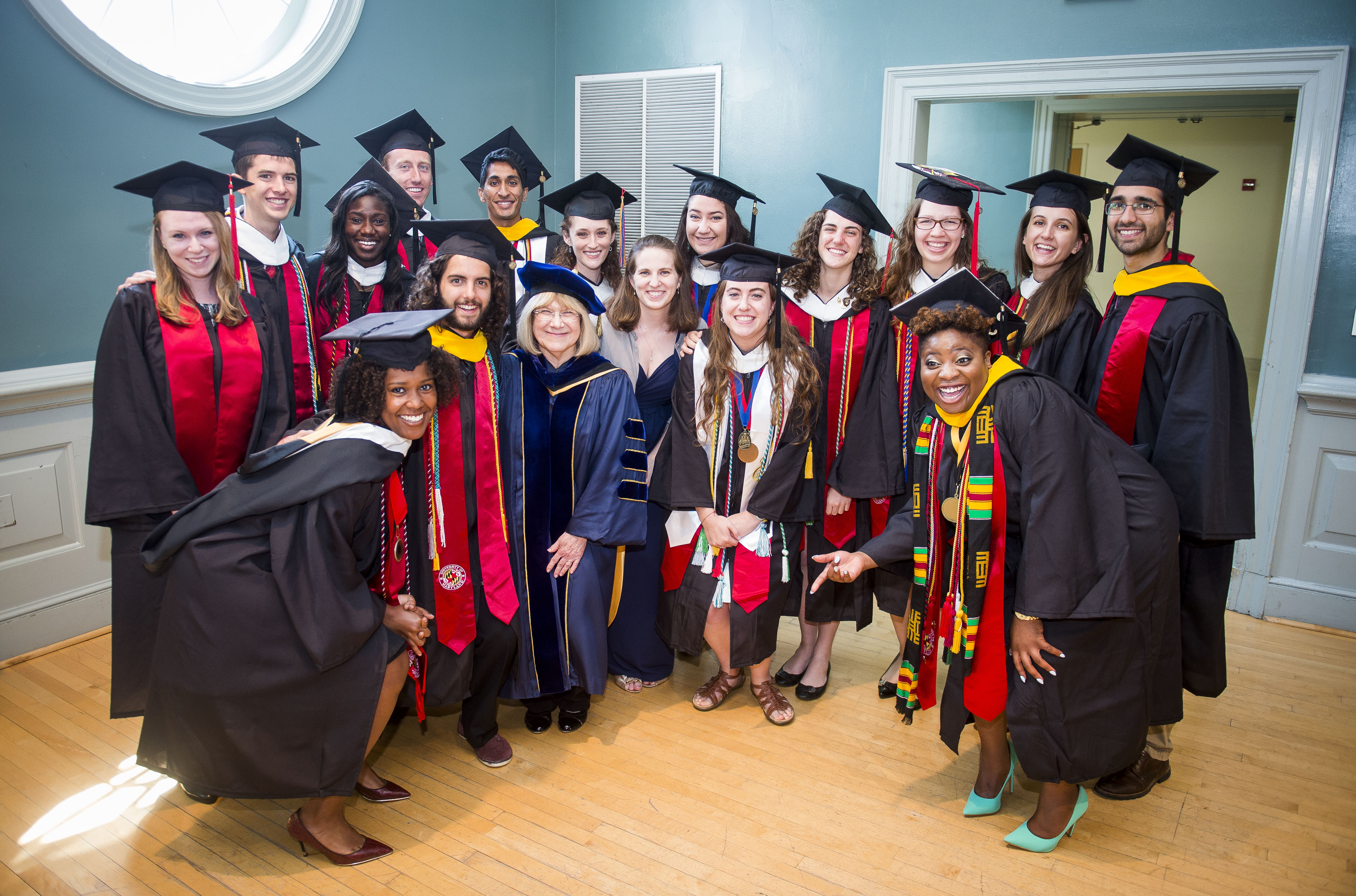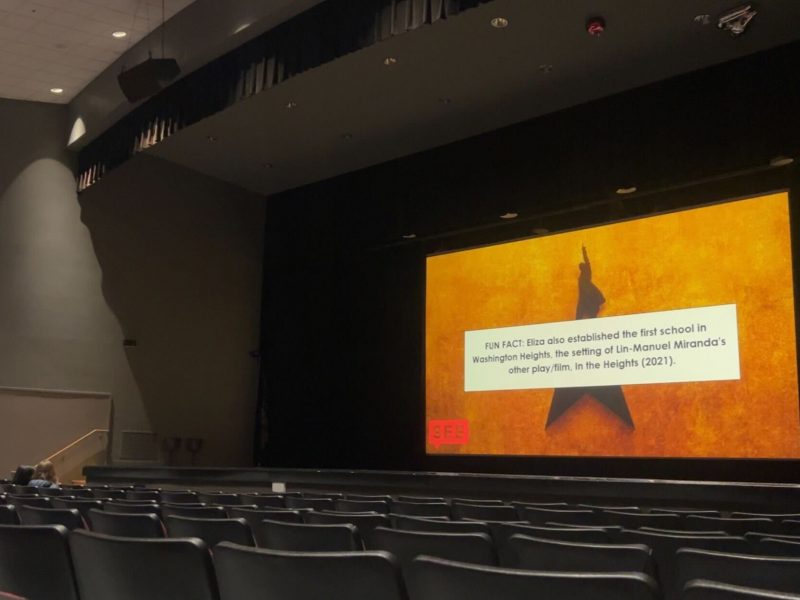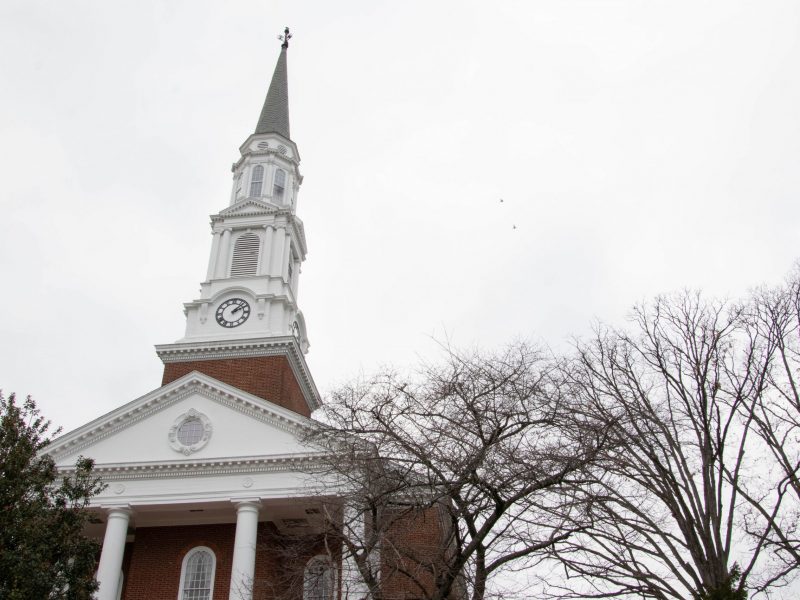All it took was the first week of classes freshman year for Christina Neidlinger to realize the major she picked out wasn’t for her.
Neidlinger, then a physiology and neurobiology major, didn’t hate the courses she was taking. But she knew she wanted something different from her college experience.
To help figure out her next field of study, she jotted down a list of her most important passions, experiences and values.
A transformative high school trip to South America made the list. As did her commitment to food security around the world — or, in the words of Neidlinger, the belief that “people gotta eat.” She also made sure to note her dream of traveling the globe to help others who need it the most.
Looking at her list, Neidlinger decided she wanted to focus on the economic understanding of why people fall into poverty, with a focus on “educational leadership” and agriculture. Now she felt confident that she had a clear idea of what she sought in a major.
But when the persistent first-week freshman went online to look at other options, none of them covered all of her interests. Neither did a double major. Or a major and a minor.
“Nothing was grabbing me,” Neidlinger said. “Nothing was just quite right.”
As she sat pondering her next decision, Neidlinger remembered something a tour guide said when she visited the university as a prospective student.
“Just off the cuff they mentioned that if you want, you can create your own major,” Neidlinger said. “So I started looking into that, thinking that it could be something I could do.”
Neidlinger did a little more investigating and discovered that the Individual Studies Program, a university department that has helped students craft their own majors since the mid-1970s, was the right fit for her. She created her own major, cross-cultural communication in agricultural development, and found her educational life falling into place.
“It ended up being exactly what I needed,” she said.
***
Since becoming director of the Individual Studies program in 2008, Joan Burton said there has been no lack of interesting majors and driven students.
There’s been a hominin evolution major, who worked on scientific papers in the U.S. and attended a conference in Germany. Another student with a major in museum studies created a virtual art exhibit, justifying her selection and juxtaposition of the included pieces. Other majors include new media and global civics, minority advocacy and public policy, and digital media in society.
But one student’s major, culture crime and family health, sticks out to Burton. The then-senior looked at families split up by crime to examine the impact it had not only on the culture of the family, but the family members’ health outcomes. For her final capstone project, the student ran a benefit event for charities that work with families torn apart by incarceration. The student gave gift baskets to the affected families.
Burton still remembers one object in particular that was in those gifts.
“They included a camera because in many families that are poverty-stricken in that situation, they have never had pictures of themselves,” she said. “It was very personal for her, and I was very moved by what she accomplished.”
Getting to that final project, however, is never easy.
First, Burton said, you need a passion that cannot be sufficiently channeled into one of the already-existing majors offered at the university.
A student then has to find a faculty mentor, who will guide the student through his or her four years in the program. With that mentor’s help, students begin to create their unique four-year plans, often drawing courses from four or five university departments and looking ahead for possible internships or opportunities to study abroad.
After that comes the hard part: presenting your written argument for your major and defending it before a faculty board comprised of university professors and deans with diverse academic focuses. Students must explain why they wish to create their majors, the applicability of each class in their four-year plans and how their self-selected curricula help them reach their goals.
If students can get past the “piercing and direct questions” from the faculty board, Burton said, then their proposed individual studies majors become a reality.
Junior Sade Ayinde remembers just how stressful that approval process was.
During her sophomore year, Ayinde went through hours of research and consulting to hone her proposal. Ayinde, working a full-time internship, also had trouble finding time in her busy schedule to meet with her faculty advisor. And the daunting task of defending a proposal before a group of faculty loomed over her head.
That grueling work is why Ayinde said the Individual Studies Program, while enticing to many, simply isn’t for everyone.
“It’s not impossible,” the global economics development and policy major said, “but I think the process is a test to see who really wants this and to kind of beat out those who may not be as serious about it.”
Senior Zak Malamed, an engagement and media major, agreed with Ayinde’s comments. While the program, boasting more than 40 students this year, provides plenty of support and resources, it also relies on each student’s independence and self-determination, Malamed said.
“They aren’t going to baby you through the process,” he said. “You have to really want it to get it.”
***
As Neidlinger begins to apply her studies in real-life situations, the 2014 alumnus said she is thankful every day for the individual studies program.
She first interned at the Spanish embassy from September 2013 to April 2014, following that up with another internship at the Food and Agricultural Organization of the United Nations in Ecuador. Currently, she works at the Pan American Health Organization headquarters in Washington, where she helps coordinate Canadian- and Spanish-donated funds for certain projects.
When she was working in Ecuador, Neidlinger said a class about agricultural policy in developing nations gave her a “leg-up,” especially when dealing with indigenous communities. Other courses that focused on development, she said, proved invaluable as she works for the PAHO, which is part of the United Nations network.
“I really believe that if I had studied just agriculture or just agricultural resource economics, I wouldn’t have as good as a grasp of what I do,” she said.
Being an individual studies major has also aided Ayinde as she seeks out internship and job opportunities. When speaking to prospective employers, the junior said her unique major is often a jumping point for conversation, as her interviewers often ask about the experience of creating an individualized major and defending it before sharp-witted university officials.
“It speaks to my initiative, it speaks to my drive, it speaks to my motivation, it speaks to my interests academically — that I do take my studies very seriously,” she said.
The Individual Studies Program enabled Malamed to strengthen his confidence in his already-developing career path.
Malamed is the founder and executive director of Student Voice, a group focused on integrating the student perspective in educational systems, which he founded his senior year of high school.
The program enabled Malamed to receive credits for his Student Voice experiences, which included creating a diverse coalition of students nationwide to “infiltrate the power structure” of education and hosting events that flip the education conference model from being “very educator-, business- and policy-maker-centric to now student-centric.”
The ability to handpick each of his courses also allowed Malamed to dive deeper into topics that interest him. Choosing classes throughout multiple academic departments, he said, lets him explore a wide array of perspectives.
If any student is interested in the Individual Studies Program but remains hesitant for fear of failure, Neidlinger would first ask what drives that fear.
“Do they think they won’t be able to get a job?” she said. “Do they think their parents will be mad at them because they were supposed to be an accountant?
“If you know what you’re passionate about, you should follow that because you can’t go wrong.”
Both Neidlinger and Ayinde said more emphasis should be placed on the individual studies program — and sooner so more interested freshman and sophomores can take advantage of it.
Malamed especially agrees with the sentiment, saying he doesn’t see the value the university would bring to students like him if there were no Individual Studies Program. He said he can’t give the university as a whole any credit for his budding success, but that he does believe the program played an integral role in his academic and professional growth.
For all that help, Malamed said he might return the favor one day.
“Frankly, if I’m ever going to donate to the university — if I’m lucky enough to ever have enough money to donate — I’m going to donate to the IVSP program,” Malamed said. “You can hold me to that.”



